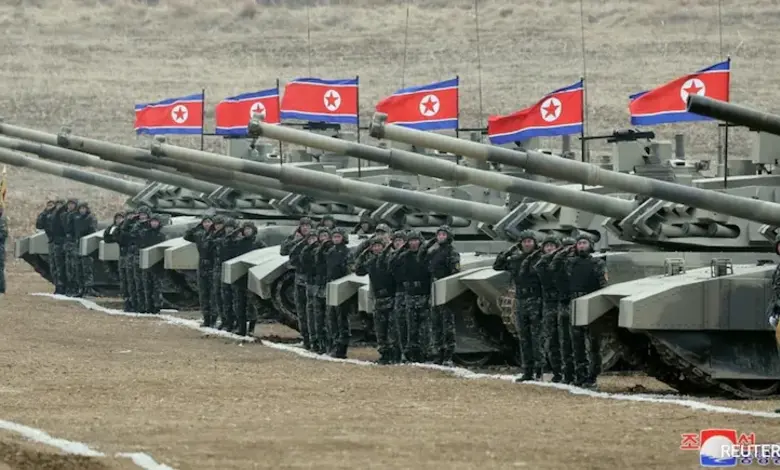South Korea’s intelligence agency has reported that approximately 2,000 North Korean soldiers have been killed and 6,000 injured while fighting alongside Russian forces in the ongoing conflict against Ukraine, according to a South Korean lawmaker briefed by the agency. The high casualty figures, cited by Lee Seong-kweun after a National Intelligence Service (NIS) briefing, highlight the significant toll on North Korean troops deployed to Russia’s Kursk region, where they have been supporting Moscow’s efforts to reclaim territory from Ukrainian forces.
The NIS estimates that North Korea has sent around 12,000 troops to Russia, a deployment Seoul has previously described as Pyongyang providing “cannon fodder” for Russia’s war in exchange for technical assistance for North Korea’s sanctioned weapons and satellite programs. Ukrainian President Volodymyr Zelensky recently confirmed Kyiv’s capture of two North Korean soldiers, with video evidence showing the wounded combatants under interrogation. Zelensky suggested the possibility of a prisoner swap for Ukrainian troops.
According to Lee, the NIS noted that North Korean forces suffer from a lack of familiarity with modern warfare, contributing to their high casualty rates. Ukrainian Special Operations Forces reported on Telegram that 18 additional North Korean soldiers were killed in an overnight assault in Kursk, with 17 killed by Ukrainian troops and one by self-detonation with a grenade. The NIS also indicated that Russia has provided North Korea with advanced weaponry, including air defense missiles, drones, and electronic warfare equipment, as well as technology for spy satellite launches.
South Korea, the United States, and Ukraine have accused North Korea of deploying over 10,000 troops to bolster Russia’s military efforts, a claim neither Moscow nor Pyongyang has officially acknowledged. The deepening military ties between Russia and North Korea, which have intensified since Russia’s 2022 invasion of Ukraine, have raised concerns about the exchange of advanced technology for North Korean support. Lee suggested that U.S. President-elect Donald Trump might pursue dialogue with North Korean leader Kim Jong Un in the coming year, while Kim may consider a visit to Russia in early 2025.
Heavy Losses for North Korean Troops in Russia’s War, Seoul Reports
